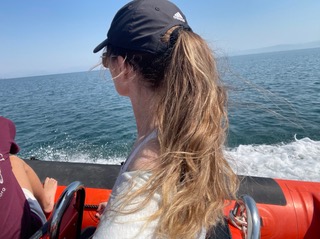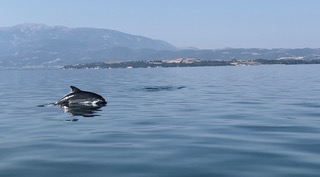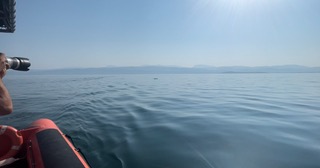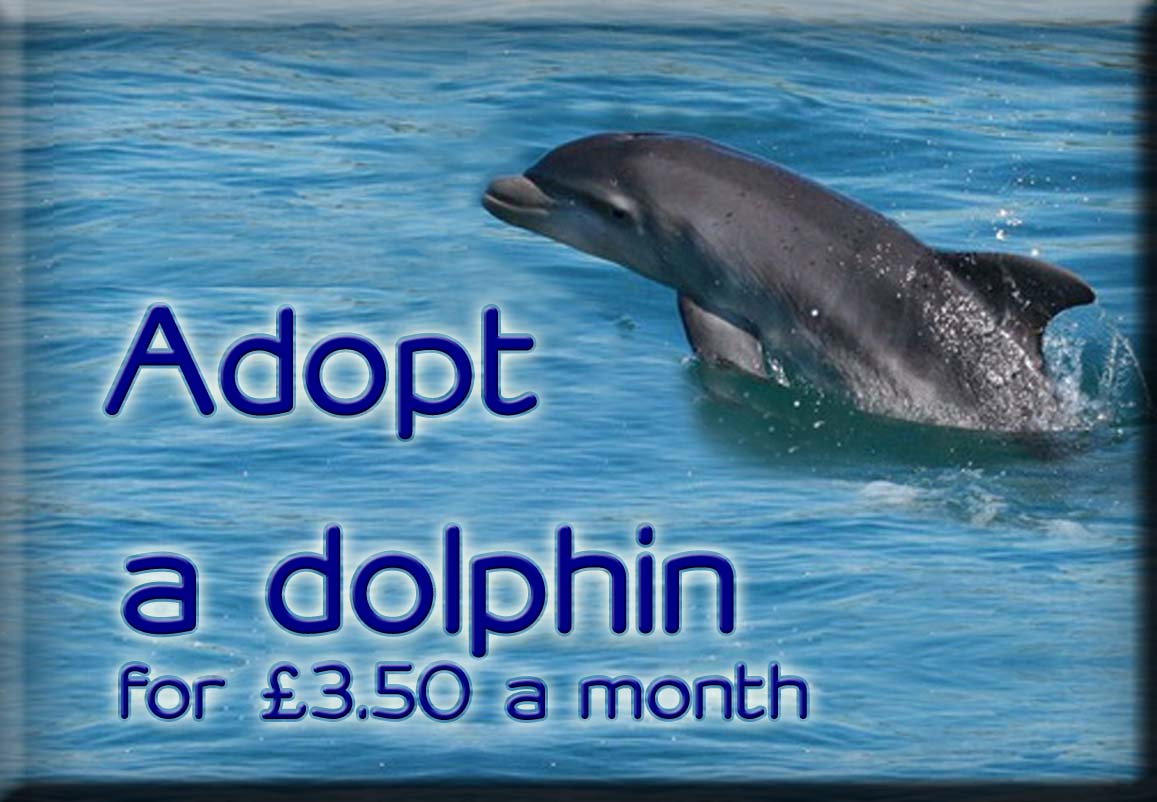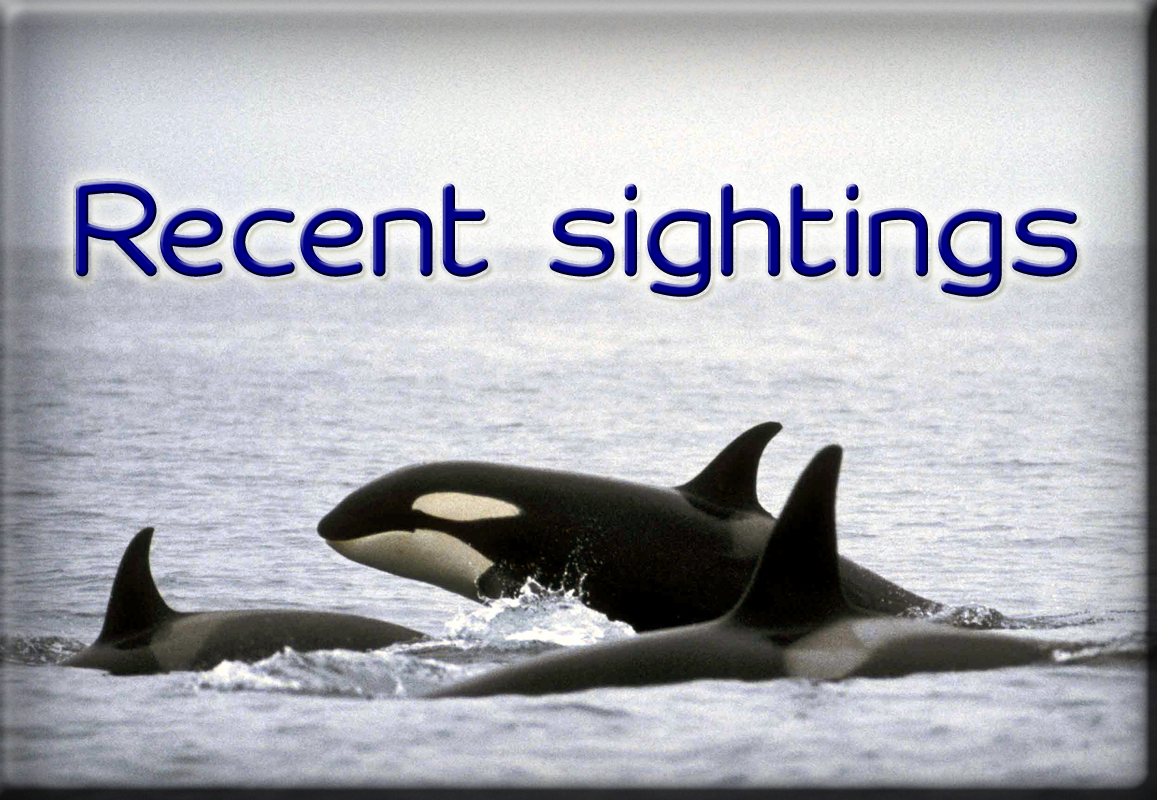Our work at Sea Watch Foundation would not be possible without our dedicated team of volunteers. We have various home-based volunteers helping with sightings, social media and helping us to keep organised! Rachael has been writing blog posts and helping run our Twitter since September last year. Some of her popular blog posts include exploring how climate change is warming our oceans and why cetacean strandings occur. This week we asked Rachael a few questions to find out why she got in touch to volunteer and how she came to pursue a career in marine conservation. Over to you Rachael!
What inspired you to pursue a career in marine conservation?
My dream to pursue a career in marine conservation began as a child when I first experienced seeing dolphins and whales up close on a family holiday. This magical experience instantly inspired my dream of becoming a marine biologist which then persisted all throughout my teenage years. Despite regularly reminiscing about my marine biology dream, I found myself down a different career path for a few years until I eventually left my small business in pursuit of making more of a difference in the world. The travels I then embarked on for a couple of years opened my eyes to the beauty of the world and the damage being done to it, bringing my attention to global ethical issues and inspiring a new found passion for the environment. Shortly after my return home, the pandemic happened so I decided it was the perfect time to pursue my dreams and I began studying marine and environmental science. I’ve since come full circle and realised working within cetacean research and conservation is my specific field of interest and thanks to my travel and life experience I am more passionate about it than ever before.
What steps did you take or are you currently taking to achieve your career goals?
I’m currently approaching the end of my Bachelors degree, therefore I am looking into pursuing a Masters degree, PhD or a professional role in marine mammal research or marine conservation and policy. I continue to seek work experience by reaching out to local and international organisations, signing up to short courses and attending conferences in order to continually build my skillset, knowledge and experience to best prepare me for my future career.
What do you know now that you wish you knew when you were starting out?
I wish I believed in my strengths more at the beginning of my studies. As I’d been out of education for a few years and hadn’t studied any scientific topics since secondary school, I thought I was out of my depth at the start of my degree. To my surprise, I went on to achieve a first throughout each year of my studies, while discovering a talent for scientific writing and a passion for research.
What advice would you give a budding marine conservationist?
My advice for people who are contemplating whether to pursue a dream in marine conservation is to just go for it. Returning to education was the best decision I’ve ever made because not only am i so much more motivated in my career journey, but it has given me a sense of fulfillment that I’m finally pursuing a lifelong dream that I would have very much regretted leaving behind. I’d also recommend building as much experience and key skills as possible because, as with any job, there will be a lot of competition so researching into the requirements of your dream roles will likely prove beneficial to your future job search.
What is your favourite marine creature and why?
It’s difficult to single out a favourite, but of course cetaceans as a collective are my favourite marine creatures. For nostalgic reasons, bottlenose dolphins are the species that first inspired my marine biology dream due to their friendly and playful nature. I have studied humpback whales the most throughout the years and find them to be fascinating and I think orcas are very cool and visually stunning creatures. I also find beluga whales to be adorable and amusing (they’re very meme-worthy!). It’s too difficult to choose just the one!
And finally, what is your most unforgettable moment at sea?
Volunteering in the Ionian Sea last summer was incredible, not only being able to see dolphins up close in a beautiful setting and in their natural environment, but being able to experience the day in the life of a research scientist and learn how they conduct surveys to monitor their abundance, behaviour and distribution. If I needed anymore convincing that this was the perfect career for me, that was it!
Thanks for that Rachael! It is great to hear you are well on the way to pursuing your dream career. If you’d like to find out what home-based volunteer opportunities we have, please don’t hesitate to get in touch at info@seawatchfoundation.org.uk and we’ll do our very best to help you.
Katie Baker Communication and Outreach Officer

